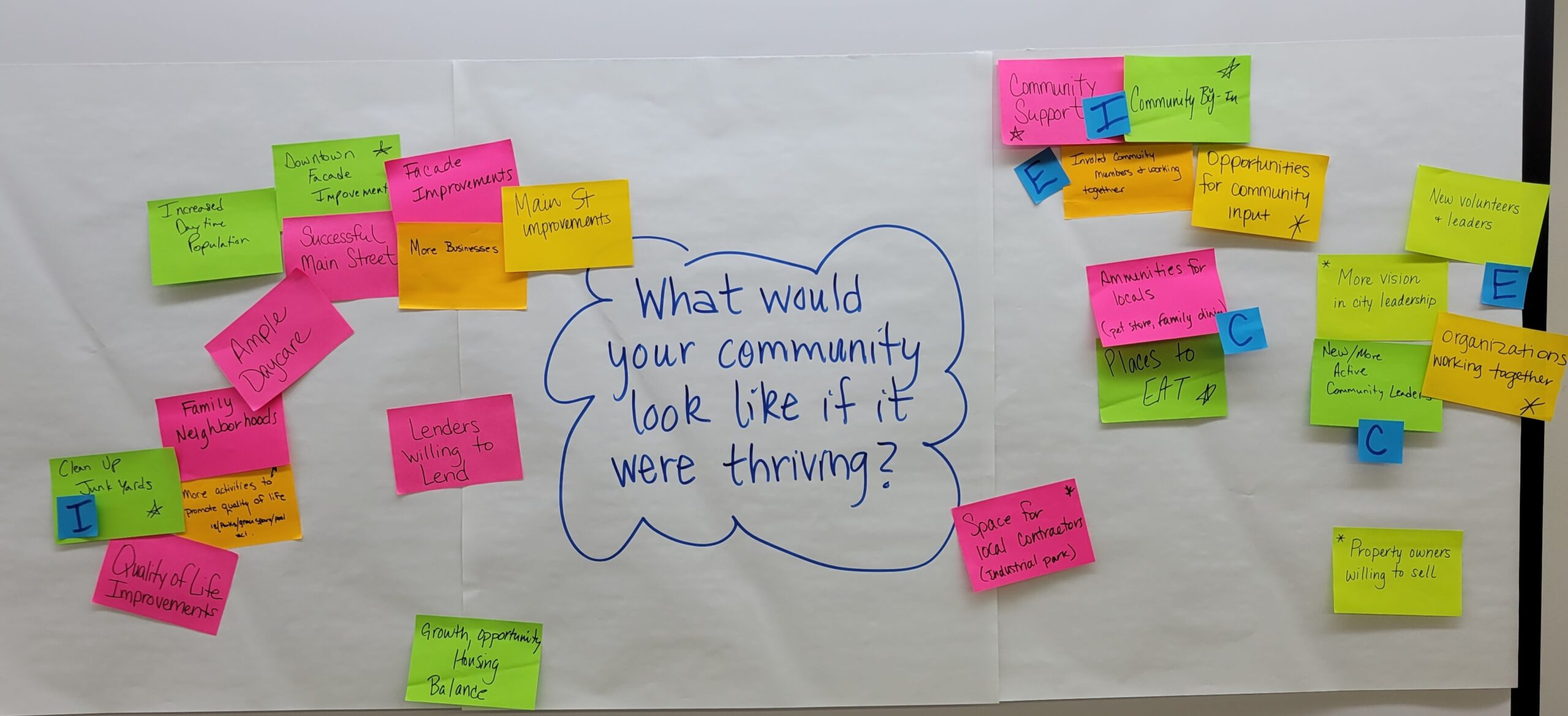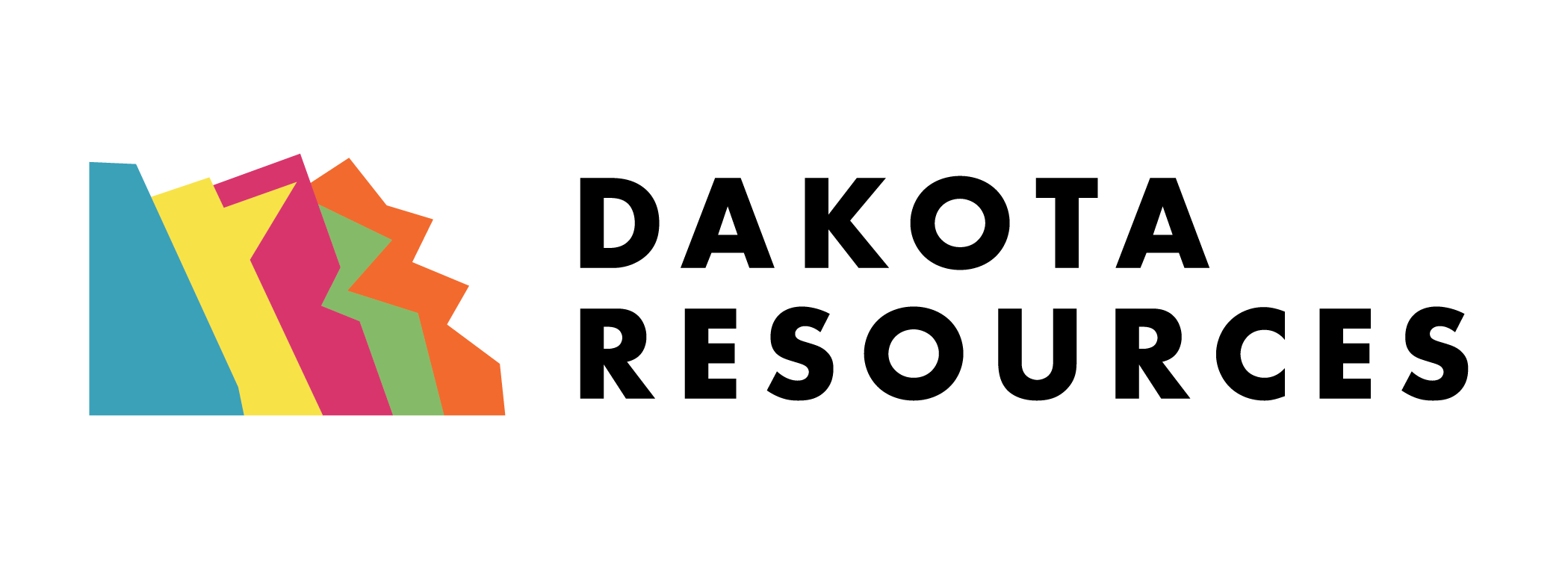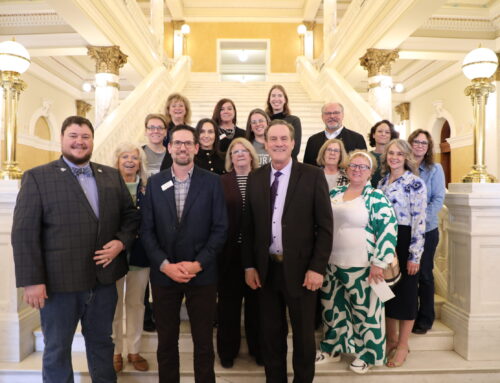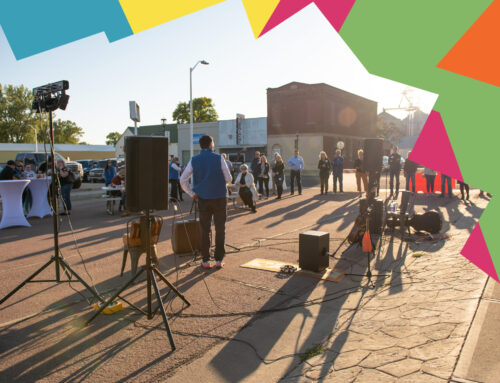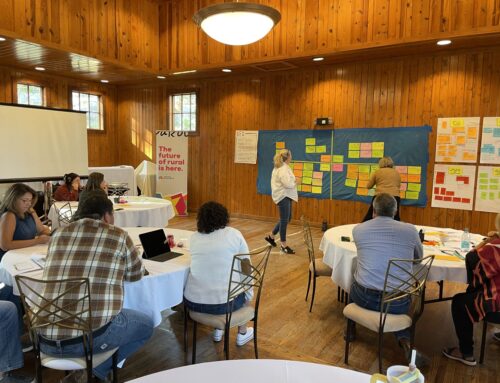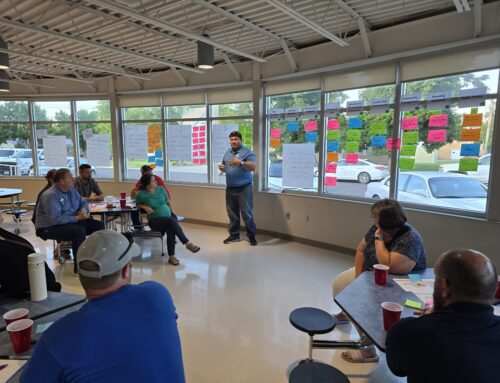Learning cohorts in Thriverr network boost confidence, build kinship among communities
As you know, rural living affords modest charm, quietness, boundless sky and a small population you know by heart.
But rural is never less than. For over 25 years, Dakota Resources has empowered small towns to feel large, able and thriving as they themselves continue to innovate until the loneliness is less.
“Dakota Resources is such a tremendous asset across our state,” says Jared Hybertson, economic development coordinator in Centerville. “Their learning network connects us all, and they have the answers I need.”
The Thriverr Learning Network within Dakota Resources is “a crucial destination for community builders ”who strive to learn from one another, says Mike Knutson, the network’s orchestrator and coach. Alongside in-person gatherings and a private membership platform, Thriverr also offers small-group cohorts that serve as a continuation of resources, accountability and support.
“They energize me,” says Tara Yost, executive director of the On Hand Development Corporation in Miller. In her first year, she joined a cohort for economic development professionals (EDPs) that are in the first couple of years of their job and is now eager to meet more people. “It’s so helpful to find out how others are doing the same job.”
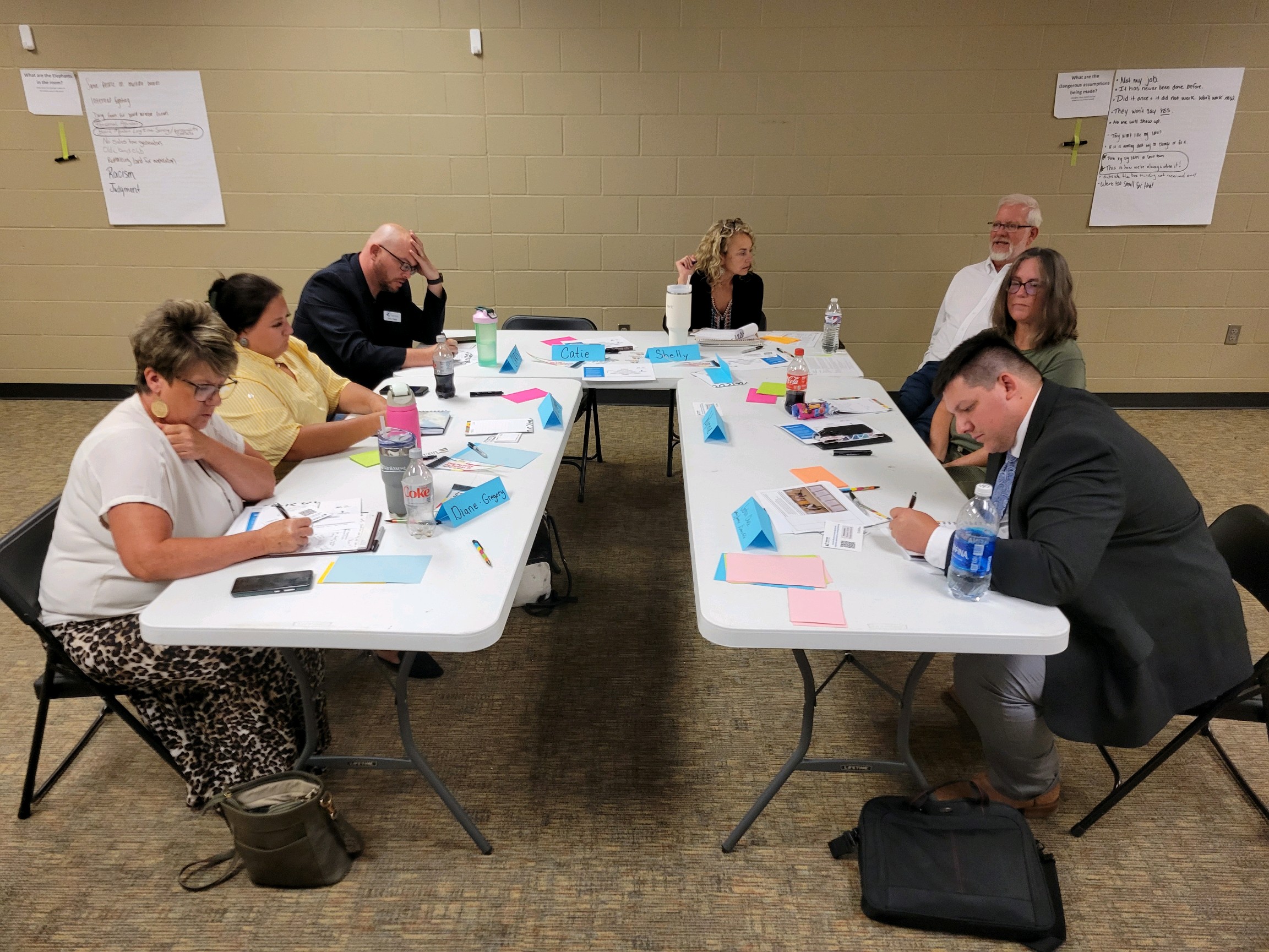
The 2024 New Economic Development Professionals Cohort meets in Chamberlain to kick off the latest cohort process.
Thriverr Learn cohorts began in 2020 as a deeper dive into training and connection for economic development professionals who’ve been at their job for two years or less. They include four in-person sessions with a group of six to eight fellow community development leaders and then two virtual 1:1 sessions with a Dakota Resources coach.
It is an opportunity for participants to reflect on their own work while receiving helpful feedback from others in a safe environment.
“I really had no idea what I was doing at first,” said Sarah Salzer, economic development director in Clear Lake. She started her job in 2022 after leaving healthcare and had no prior experience in community development. “But all of the people in my cohort were also new and also asking themselves, ‘Where do I even begin?’ We had the same mindset and the same goals.”
Overcoming isolation
Knutson says leaders in small towns are expected to be great at everything – to multitask. Despite little direction, they should have aptitude in housing, childcare, event planning, policies, rapport between the public and private sectors and act as a well-versed spokesperson for their community.
“I am the executive director, but, other than our board, it’s just me doing things,” Salzer says.
Yet her Thriverr network has empowered her to shift bravely from inferiority to productivity.
“Now, every single cohort I attend, I take something away from it, learn how to do it, and try it when I get home,” she says.
Since beginning her work, Salzer has written (and received) grants, initiated sidewalk safety, preserved old murals and commenced new ones, led new housing developments, and helped to install a water-filling station at the baseball fields.
Knutson said Salzer also initiated a lunch-n-learn with the Clear Lake Area Chamber of Commerce and assembled a grant writing class to help one another better understand that process. These EDPs were essentially competing for the same grant but still got together to share ideas as they sought support for their communities.
“Sarah epitomizes the biggest change we notice through that cohort and how she thinks about her role as the leader of her organization,” he says. “These cohorts are designed to build capacity and confidence, and we believe strongly in this concept of moving faster, together.”
Cohorts ‘make your community better’
Dakota Resources has incredible awareness of needs across the state as well as where success stories lie and how those achievements can solve problems elsewhere. They constantly reach out to new organizations or new EDPs to make sure they feel a part of something, not excluded.
“Dakota Resources is so good at helping you out and giving you the extra motivation I wouldn’t get anywhere else,” says Yost, who is also working on grants and recently got accepted into Leadership South Dakota. “I cannot imagine a better advocate for my work.”
“When you start making connections with different people in different towns that are doing the same thing, you make your own community better,” says Laine Warkenthien, Yost’s board president.
“Economic development is not all about business, it’s about quality of life for our community.”
Warkenthien says that Yost recently brought into town a Delta Dental trailer for the week, making dentists and hygienists available for routine cleanings.
“We lost our dentist a couple years ago,” he says. “But it’s still important for families who don’t have the means to take their kids out of town to go to the dentist, so Tara brought one here.
“She is a very good people-person who is willing to try new things for our area.”
Dakota Resources president Joe Bartmann says that community board members like Warkenthien are the ones who provide support for ideas or plans, but it’s an economic development leader like Yost, Salzer or Hybertson who need to see that work to fruition.
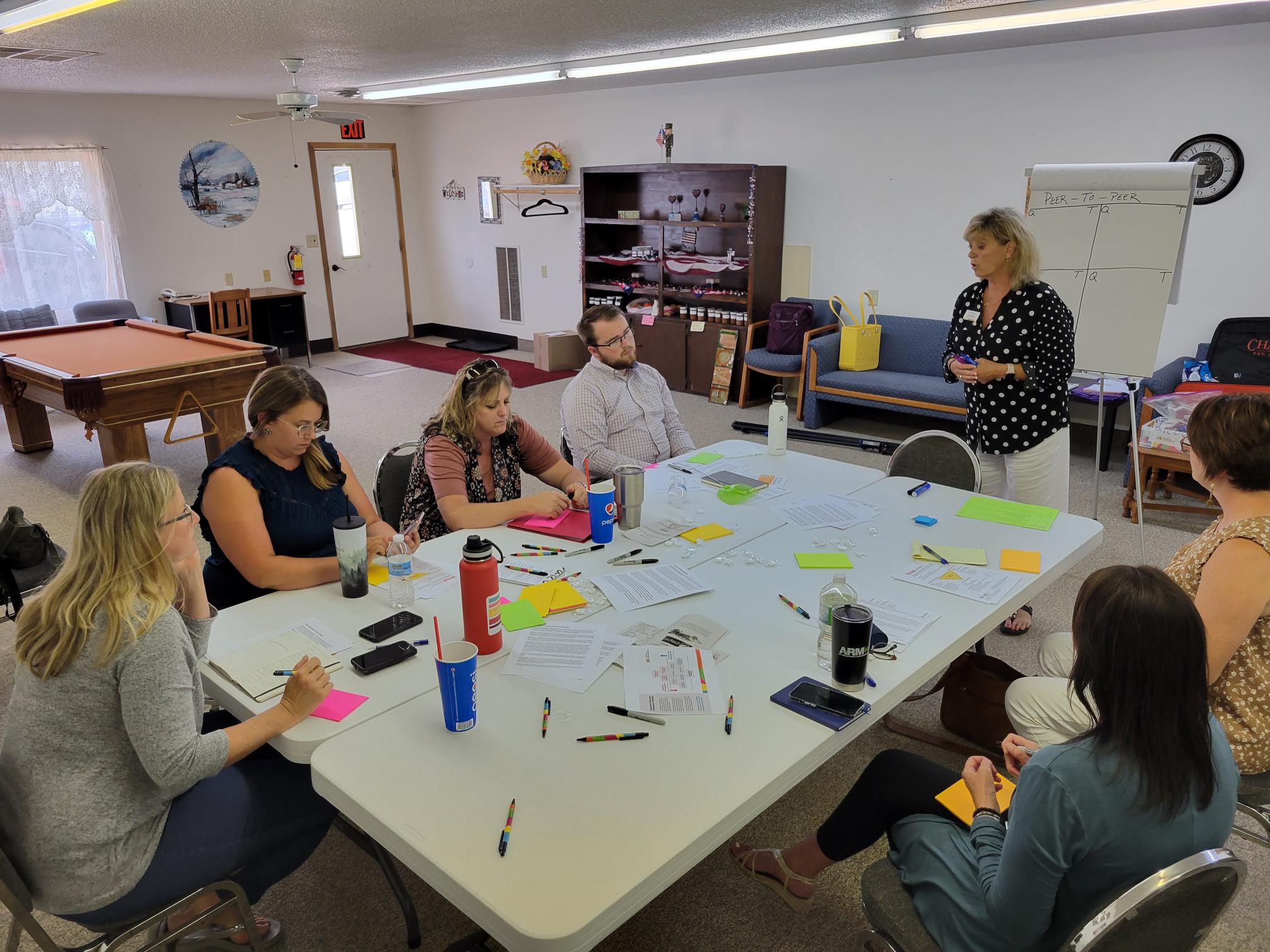
The 2022 New Economic Development Professionals Cohort meets. This cohort process has been happening since 2020, creating a community economic development professionals new to their job.
“This is why the Thriverr network and its subsequent cohorts are such an ally to EDPs,” he says. “It’s a more tangible support system. They have permission from their board and then tools and empowerment from Thriverr to proceed.”
Like a book club you want to return to — a friendship that provides comfort and confidence — these cohorts can make you feel seen.
“Learning in a cohort is the best way to grow,” says Ellie Naasz, the director of community impact at Dakota Resources.
What’s ahead?
Bartmann says cohort trainings naturally emerged because members were asking for deeper learning opportunities. By connecting anyone who was asking the same questions – alongside mentorship from coaches and seasoned EDPs – these gatherings broke down barriers that were once in the way of efficiency.
“Compared to five years ago, we are helping way more communities with less staff,” Bartmann says. “And the only reason we’ve been able to do that is because all of these people who needed help are actually the ones helping each other. They are seeing each other less as competitors and more as a team.”
Bartmann calls the evolution “from turf to trust.” In the beginning, coaches were compelled to hit the road and physically visit rural communities in need of support. This relationship-building will always prove beneficial, but the most encouraging surprise is how these cohorts breed a self-confidence that can otherwise be absent in the rural workplace. Collaboration cures.
“For our rural communities to thrive,” Knutson says, “we need our community leaders to support each other.”
Bartmann says Dakota Resources hopes to expand the Thriverr network to communities beyond South Dakota. But their priority right now is continuing to empower the participants themselves to lead the charge.
“We want to go from Dakota Resources creating content for members to the members leading cohorts themselves,” he says. “It’s a very exciting endeavor.”
Learning cohorts are $200 to participate. To learn more, visit www.dakotaresources.org or contact us here.
